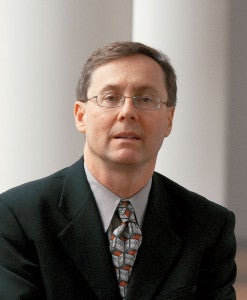The next steps in executive pay reform
“Companies have long been able to camouflage large amounts of pay that have nothing to do with performance. [R]eform would make transparent the magnitude of executives’ total pay, providing a check on the escalation of remuneration levels. Furthermore, making all compensation transparent would eliminate the incentives that companies have had to pay executives in ways that are better hidden, such as through retirement benefits, but are less linked to performance.”
Professor Lucian Bebchuk LL.M. ’80 S.J.D. ’84, The Financial Times, July 28.


Local campaign finance reform overlooked
“The supreme court only fueled … destructive dynamics last term, when it struck down Vermont’s limits on campaign contributions on the grounds that they were overly restrictive. … [T]he Court overlooked the experiences of municipalities around the country, where campaign finance reforms have led to fairer elections and better government. Dozens of towns and cities, from New York City to Austin, Texas, have adopted contribution limits in response to problems that are obvious at the local level, where people know their politicians better. By ignoring these local reforms, the Court in effect defined democracy as a state and federal matter only.”
Professor Christine Desan, The Boston Globe, Aug. 18.
Honesty makes for poor police work
“In the wake of September 11, there was a lively debate about the optimal mix of ‘hard’ versus ‘soft’ power—guns versus diplomacy, military force versus foreign aid. [The] foiled plot to blow up commercial jets shows that a similar divide informs the world of police work. … Aside from a few tidbits in today’s papers, I don’t know what British agents discovered as they were putting the puzzle’s pieces together, or how they discovered it. And I don’t want to know—if I know, others will too, and some of them will use that information to serve terrible ends. But I do want American agents and officers to have the widest possible latitude in putting the pieces of other, similar puzzles together. Honesty may be good policy, but it makes for poor policing.”
Professor William J. Stuntz, The New Republic, Aug. 12.


Washington having it both ways
“For years, washington has been having it both ways with entitlement programs for our senior citizens. Particularly in election years, politicians fall all over themselves promising the elderly that Social Security and Medicare are sacrosanct and that even the most modest of adjustments will not be countenanced. Yet when the accounting profession concludes that commitments of this sort need to be recognized as liabilities on the balance sheet of the federal government, the same officials promptly resort to legal niceties, stressing that the programs cannot possibly represent real financial obligations for the federal government because Congress is free to eliminate them at any time.”
Professor Howell E. Jackson ’82, The New Republic Online, July 12.
A ticker-taped Trojan horse?
“Is a ticker-taped Trojan Horse soon to be planted on European shores, filled with an army of U.S. regulators, Sarbanes-Oxley accountants and overzealous plaintiff lawyers? These fears, recently voiced on both sides of the Atlantic, fundamentally misperceive what the possible New York Stock Exchange/Euronext and Nasdaq/London Stock Exchange mergers represent—a way for U.S. exchanges to offer listing and trading alternatives to non-U.S. companies wishing to avoid the U.S. regulatory regime. The last thing the merger partners want is to Americanize foreign exchanges. Indeed, such a development would probably kill the deals. The real issues are whether these potential mergers reflect the end of U.S. dominance in world capital markets and the extent to which European-style corporate governance would adequately protect investors.”
Professor Hal Scott and George Dallas, The Financial Times, July 19.
